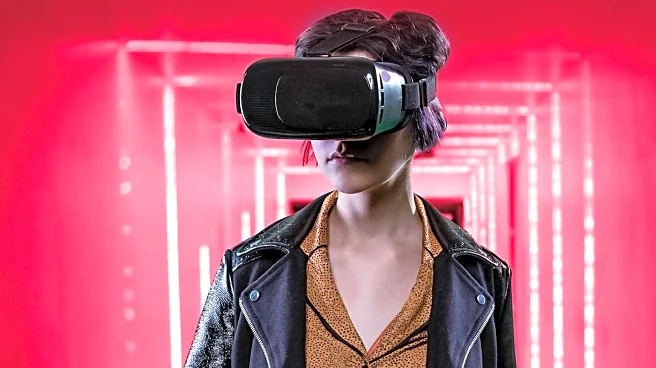What's Happening?
The concept of self is being redefined in a hyperconnected world, where digital interactions blend individuality with collective identity. Philosopher George Herbert Mead's theory of the 'looking-glass self' suggests that identity is shaped by interactions and
perceptions, a process accelerated by digital technology. Hyperconnectivity raises questions about authenticity and identity fragmentation, as individuals navigate between digital and real-world personas. This phenomenon challenges traditional notions of self, prompting philosophical inquiries into the balance between individualism and collectivism in a digitally connected society.
Why It's Important?
The evolving concept of self in a hyperconnected world has significant implications for society and culture. As individuals increasingly rely on digital platforms for social interaction, the boundaries between personal and public identities blur. This shift affects mental health, social dynamics, and cultural norms, as people grapple with maintaining authentic identities amidst digital influences. Understanding these changes is crucial for addressing the psychological and social challenges posed by hyperconnectivity, and for fostering a balanced integration of technology into daily life.
Beyond the Headlines
The philosophical exploration of self in a hyperconnected world raises ethical questions about identity and authenticity. As technology continues to shape human interactions, individuals must navigate the tension between personal expression and societal expectations. This dynamic prompts a reevaluation of traditional philosophical concepts, such as individualism and collectivism, in the context of digital connectivity. The ongoing transformation of selfhood highlights the need for a nuanced understanding of identity in an increasingly interconnected world.















